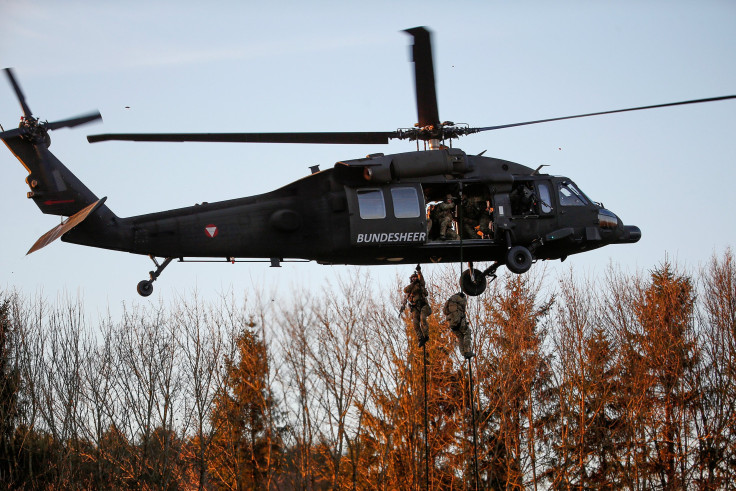NATO War With Russia: US Troops, Helicopters Deployed To Germany

Even though President Donald Trump has said he wants to improve relations with Russia, the latest movement of U.S. troops and equipment to Belgium and eventually Germany Thursday could disrupt the new administration’s intentions towards Moscow.
An Army combat aviation brigade, including nearly 2,000 troops and hundreds of pieces of equipment, arrived at a Belgium port ahead of a trip to Germany Thursday. The Army has been bulking up its presence in Europe and the North Atlantic Treaty Organization’s (NATO) forces, Stars and Stripes reported.
Over the next nine-month rotation, the 10th Combat Aviation Brigade from Fort Drum, New York, will be stationed in Europe. In addition to the troops, 50 Black Hawk and 10 tandem rotor Chinook helicopters shipped out, as did an aviation battalion from Fort Bliss, Texas, with its 400 soldiers and 24 Apache attack helicopters.
The entire unit will be in Germany, but soldiers and the helicopters will also circulate around bases in Poland, Romania and the Baltics.
“We’re going to be all over Europe joining the 'Strong Europe’ team and integrating into their training plan for the next nine months,” brigade commander Col. Clair A. Gill said.
The new troops help to buttress Trump’s comments to U.S. Central Command Monday about NATO when he said the country will “strongly support” the decades-old alliance.
It appeared Europe was also confident in the arrival of troops in Poland, Reuters reported. The allies were “reassured” by Trump’s comments and the report highlighted how U.S. diplomats urged Lithuania to quickly agree to continue the presence of American troops so as to deter lock Trump into a NATO strategy in regards to Russia. The agreement was signed three days before Trump took the Oath of Office, according to Reuters.
“When you put soldiers on the ground, tanks like this, that signifies a long-term commitment,” U.S. Army commander in Europe and Lieutenant Gen. Ben Hodges said at a base in Poland.
© Copyright IBTimes 2025. All rights reserved.





















